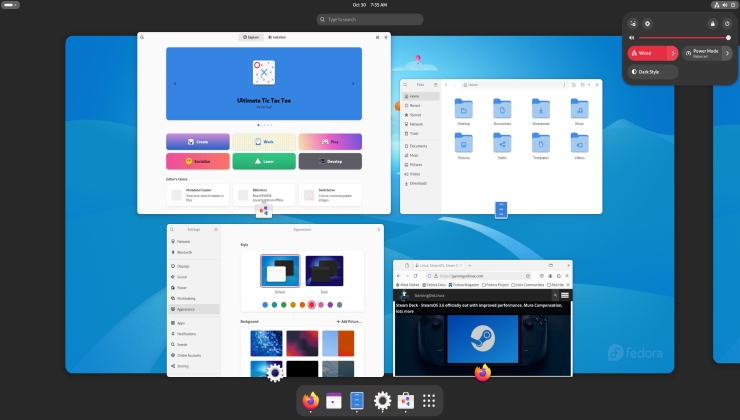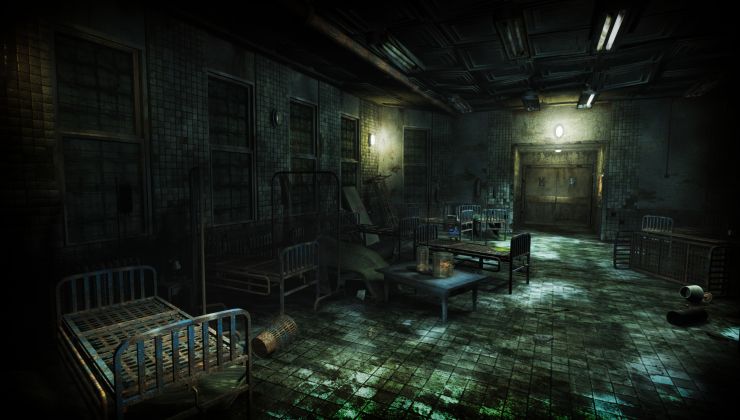I'm quite a fan of the indie colony building sim Maia, it has sweet retro sci-fi future graphics and it's starting to come together little by little. It has taken a long time to get here, so Simon has a blog post explaining what's going on.
This is one rather important piece to remember:
Support takes an insane amount of time, most developers end up being completely unprepared for it.
It leads me into something else, people who complain when developers state the support time required for launching a Linux version in addition to other versions (say during Early Access or soon after a big launch). It is an additional support cost, when they could already be overworked by existing support requests, normal development and so on, something even I forget. This has reminded me to be a little more patient.
As for actually supporting Linux, Simon says:
That, I am sure, will be pleasing to hear for a lot of you. Sadly, it's not all rosy:
This is a problem for normal users too, a lot of people are confused on just what driver supports and works on their AMD GPU. It's a turbulent time for that team of users, but hopefully within a year it will be a lot calmer. For a developer though, I can certainly understand that being a really frustrating issue.
His comments about supporting Mac are quite hot too:
Not surprising, since they are now focusing on their own Metal API.
Then there's also the cost involved, and that's just one unit:
He touches on other nuisances like the tax man claiming he owed money he didn't. He paid it anyway, then they refunded it as he really didn't owe anything. This is typical behaviour that I've seen others go through, as the HMRC (our tax people) are extremely understaffed in the UK and different departments give different (and wrong) advice, which is something I have also annoyingly had to deal with.
Banks being idiots which is something I personally dealt with while sorting out our Patreon. I had a similar issue where my bank lost my business account documents, so I had to re-do them, twice. Then I only had partial access to my account for a week or so and it's just not a great experience setting up a business bank account in the UK.
There's a lot of factors at play for developers behind the scenes, it's always interesting to see developers actually write about them.
See his full blog post here. You can find his game Maia on Steam.
Making games is fun eh!
This is one rather important piece to remember:
QuoteLaunching at an early stage caused a support backlog of biblical proportions. My engine will run on almost anything. I’ve spent a lot of time ensuring it. But problems crop up none-the-less. When you sell five figures on your first day, even a small amount of issues are suddenly a full time job for an entire team of QA staff and programmers. As a solo bedroom programmer I was quite unprepared to deal with it. This cost me months, and frankly continues to cost me time and money every day.
Support takes an insane amount of time, most developers end up being completely unprepared for it.
It leads me into something else, people who complain when developers state the support time required for launching a Linux version in addition to other versions (say during Early Access or soon after a big launch). It is an additional support cost, when they could already be overworked by existing support requests, normal development and so on, something even I forget. This has reminded me to be a little more patient.
As for actually supporting Linux, Simon says:
QuoteLinux is for all it’s faults has not been too much of a problem. For the most part the game functioned well, sometimes even better than on Windows.
That, I am sure, will be pleasing to hear for a lot of you. Sadly, it's not all rosy:
QuoteHowever, recently there was a big shake-up with the graphics stack and it was an unpleasant surprise for me. The largest distributions decided to deprecate the closed source binary drivers for ATI graphics and switch over to their open source ones.
This is a problem for normal users too, a lot of people are confused on just what driver supports and works on their AMD GPU. It's a turbulent time for that team of users, but hopefully within a year it will be a lot calmer. For a developer though, I can certainly understand that being a really frustrating issue.
His comments about supporting Mac are quite hot too:
QuoteThe engine is OpenGL and uses SDL for windowing. It seemed entirely feasible to support Macbook pros, and potentially even the lower end machines. Sadly Apple just doesn’t care about graphics performance at all. Despite claiming to, their drivers just don’t properly implement the OpenGL specifications. […] Much like Apples smug advertising, it’s unbearable.
Not surprising, since they are now focusing on their own Metal API.
Then there's also the cost involved, and that's just one unit:
QuoteLet’s not forget that requiring a £3000 Macbook to build and test the game on was a non-trivial amount of money for our budget. Has Mac support broken even? Unlikely. Would I support Mac again? No.
He touches on other nuisances like the tax man claiming he owed money he didn't. He paid it anyway, then they refunded it as he really didn't owe anything. This is typical behaviour that I've seen others go through, as the HMRC (our tax people) are extremely understaffed in the UK and different departments give different (and wrong) advice, which is something I have also annoyingly had to deal with.
Banks being idiots which is something I personally dealt with while sorting out our Patreon. I had a similar issue where my bank lost my business account documents, so I had to re-do them, twice. Then I only had partial access to my account for a week or so and it's just not a great experience setting up a business bank account in the UK.
There's a lot of factors at play for developers behind the scenes, it's always interesting to see developers actually write about them.
See his full blog post here. You can find his game Maia on Steam.
Making games is fun eh!
Some you may have missed, popular articles from the last month:
4 comments
QuoteThe largest distributions decided to deprecate the closed source binary drivers for ATI graphics and switch over to their open source ones.I thought it was the opposite: AMD refused to support their Catalyst drivers for newer Xorg versions (stopped at v1.17 iirc) and focus on AMDGPU (-PRO for the closed parts). That's why all distros purely and simply ditched Catalyst driver as they don't want to release old version of X. Am I wrong?
3 Likes, Who?
Quoting: GuestThis is why indie devs should start by releasing only the Linux version! :) A hundred times fewer support requests!
And a million more "when does it release for Windows?" requests.
1 Likes, Who?
Quoting: NelYou are partly right. AMD did indeed decide to ditch Catalyst and concentrate on open-source and AMDGPU-PRO. Canonical, on the other hand, might have been able to force some support out of them for a short while, but because 16.04 being an LTS, that was also not an option. So this was the best decision from both sides. For some people, this is a bit frustrating, but it is also a big step, and a very positive on that. AMD drivers nowadays are like a high-speed rail always in motion.QuoteThe largest distributions decided to deprecate the closed source binary drivers for ATI graphics and switch over to their open source ones.
I thought it was the opposite: AMD refused to support their Catalyst drivers for newer Xorg versions (stopped at v1.17 iirc) and focus on AMDGPU (-PRO for the closed parts). That's why all distros purely and simply ditched Catalyst driver as they don't want to release old version of X. Am I wrong?
And as other developers said before, it is easier with Mesa, where they can really look into things when encountering something, than with something like Catalyst which is quite a mystery, even for AMD (last time I read something about being lines in there no one knows what they do, but are afraid to break something if removed).
Last edited by tuxintuxedo on 11 September 2016 at 7:17 am UTC
0 Likes
Superb article!
1 Likes, Who?







See more from me